July 16, 2020
What are breast reconstruction failure rates following radiation therapy?
Implant breast reconstruction continues to be the most widely performed method of reconstruction to date, but it may not always be the best option.
A study published in Plastic and Reconstructive Surgery compared complications after implant and autologous (tissue) breast reconstruction in patients who had radiation therapy. The study included 4,781 patients. Of the patients who had implanted-based surgery, 29.4% resulted in failed reconstruction resulting in more surgery such as removal of the implant. However, patients choosing autologous based surgery (using their own tissue) only saw a 4.3% failure rate.
“This article shows an unfortunate trend in reconstructive breast surgery, namely our specialty’s over-reliance on breast implants” says PRMA’s Dr. Gary Arishita. “We have known for many years that performing implant reconstruction in a radiated breast is associated with a significantly increased risk of re-operation and reconstructive failure. Despite this fact, implant reconstruction remains the most common method of reconstruction in radiated patients. This article adds to the existing body of peer-reviewed, published data supporting autologous reconstruction instead of implants in the setting of radiation. I don’t believe an operation with a 29% failure rate is an acceptable option, especially when our success rate for flap reconstruction is over 99% in the radiated patient. Ultimately, my patients decide what they want to do regarding reconstruction and I present the data to assist them in making their decision. This article will be useful in helping my patients decide how to proceed.”
So, what’s the take home message? Implants and radiation do not mix well. A 29% failure rate is far too high in our opinion.
Advanced autologous (flap) procedures like the DIEP flap represent today’s gold standard in breast reconstruction. Unlike implants, the DIEP flap procedure restores a “natural”, soft, warm breast after mastectomy. Tissue can also be removed from other areas of the body depending on the patient’s tissue distribution (like the inner thigh, or buttock) and transplanted to the chest, eliminating the need for an implant.
Most women undergoing procedures like the DIEP flap are also candidates for microneurorrhaphy (a procedure to repair nerves damaged at the time of mastectomy). This extra procedure performed at the same time as the breast reconstruction provides patients a higher likelihood of regaining some feeling after mastectomy. Combine these benefits along with the significantly lower risk of failure after radiation, and it is clear why autologous reconstruction techniques may be the better option for many patients.
Sadly, most women today are not fully informed of all their reconstructive options before undergoing surgery. It’s important for patients to know there are almost always choices, and implants are not the only one. Take time to discuss all options with your surgeon, and through shared decision making, choose the best reconstruction technique for you.
Author: Dr. Minas Chrysopoulo and Courtney Floyd
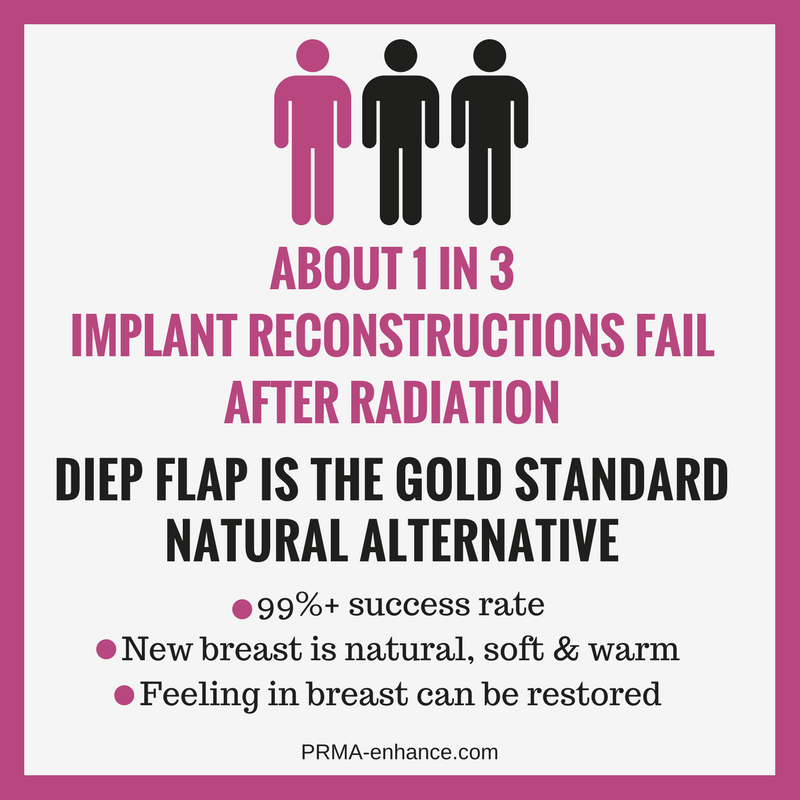
I don’t believe an operation with a 29% failure rate is an acceptable option, especially when our success rate for flap reconstruction is over 99% in the radiated patient. Ultimately, my patients decide what they want to do regarding reconstruction and I present the data to assist them in making their decision. This article will be useful in helping my patients decide how to proceed.
Leave Comment
-
-

Latissimus dorsi flap is a good option for some patients who do not have enough tissue for a flap surgery. However, the tummy is not the only area where tissue can be removed. Tissue can also be taken from the inner thigh (TUG/VUG) or the buttock area (GAP).
If there is any loss of range of motion associated with the LAT flap, physical therapy is a great option to help regain mobility after surgery.PRMA Plastic Surgery
July 20,2020
-
-

In 2011 I had Stage 1 IDCIS triple neg and decided on DIEP flap procedure with a breast lift on the other side to match the new reconstructed breast. I did not need radiation and this procedure leaves you feeling and looking beautiful. But unfortunately I had a recurrence on the same side of the reconstructed breast in the axillary lymph nodes. Radiation was necessary for the reconstructed breast even though the occurrence was in left armpit nodes, and therefore, I was left with a very hard breast to touch and it also lifted quite a bit too. That left my good breast looking so low as if though I had not had a breast lift at all. That being said, I would have benefited delaying my reconstruction till after radiation therapy in my opinion. Of course no one anticipates getting a recurrence within 6 months and so what are the options for fixing something like this and make it beautiful again? I guess I fell in the few percentage that get a recurrence on the same side as the DIEP flap reconstructed breast.
Lupe Garza
July 20,2020
-

So sorry to hear of your recurrence Lupe! There are options to help correct the damage radiation caused to your reconstructed breast. We would be more than happy to review your needs and provide you with our surgical recommendations! You are welcome to set up an appointment by calling our office at 800-692-5565 or you can fill out our FREE virtual consultation form at https://prma-enhance.com/schedule-a-consultation/
PRMA Plastic Surgery
July 20,2020
-
-

I’ve had a consult with a plastic surgeon who has suggested tram flap with adding an implant after for my right side. How well does this work on radiated skin? I don’t have enough fat for a decent sized breast. So he suggested both procedures. Then an implant for the left side. Are they going to look noticeably different? I can’t seem to find anyone who has has this procedure.
Andrea
September 3,2020
-

Thanks for reaching out Andrea. First, we never recommend the TRAM flap as an option for breast reconstruction. The TRAM was replaced by the DIEP flap many years ago as the gold standard for reconstruction using the lower abdominal skin and fat. Unlike the TRAM, the DIEP preserves ALL the abdominal muscles. Only skin and fat are used. Because abdominal muscles are spared, patients report less pain, recover faster and experience fewer long-term complications. If you did opt to undergo a DIEP flap, there are multiple options to consider to achieve your desired breast size. Adding an implant is an option, but we do not recommend adding an implant until the second stage (revision surgery). We would be more than happy to evaluate your needs and provide you with our surgical recommendations via our virtual consultation. If you are interested, we welcome you to fill out our virtual consultation form found here: https://prma-enhance.com/schedule-a-consultation/
PRMA Plastic Surgery
September 4,2020
-
Sign Up for Our Monthly Newsletter
Continue Reading

Breast Reconstruction Surgery and Your Period
Breast Reconstruction Surgery and Your Period December 02, 2020 Share on Facebook Twitter Linkedin During our pre-operative appointment with patients, a topic that occasionally arises is menstrual cycles. It is completely normal for women to experience changes with their periods throughout breast cancer treatments. These can be temporary or permanent. Periods can be unpredictable following […]
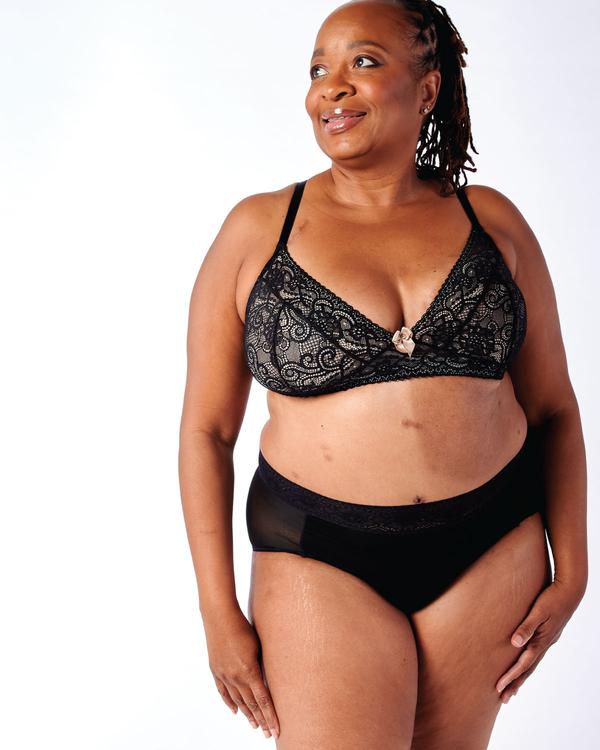
What Bras and Abdominal Girdles to Wear After Breast Reconstruction Surgery
What Bras and Abdominal Girdles to Wear After Breast Reconstruction Surgery November 17, 2020 Share on Facebook Twitter Linkedin When preparing for breast reconstruction surgery, many patients want to know what types of bras and abdominal girdles they should plan to wear after surgery. Although every surgeon has slightly different preferences, we have put together […]

My 5 DIEP Flap Realities | A Guest Blog From Julie
My 5 DIEP Flap Realities October 28, 2020 Share on Facebook Twitter Linkedin Hi everyone, my name is Julie from It’s a Bosom Thing. I am so happy to be here as a guest blogger and have this opportunity to share with you a few thoughts about life after DIEP Flap Surgery. I was diagnosed […]
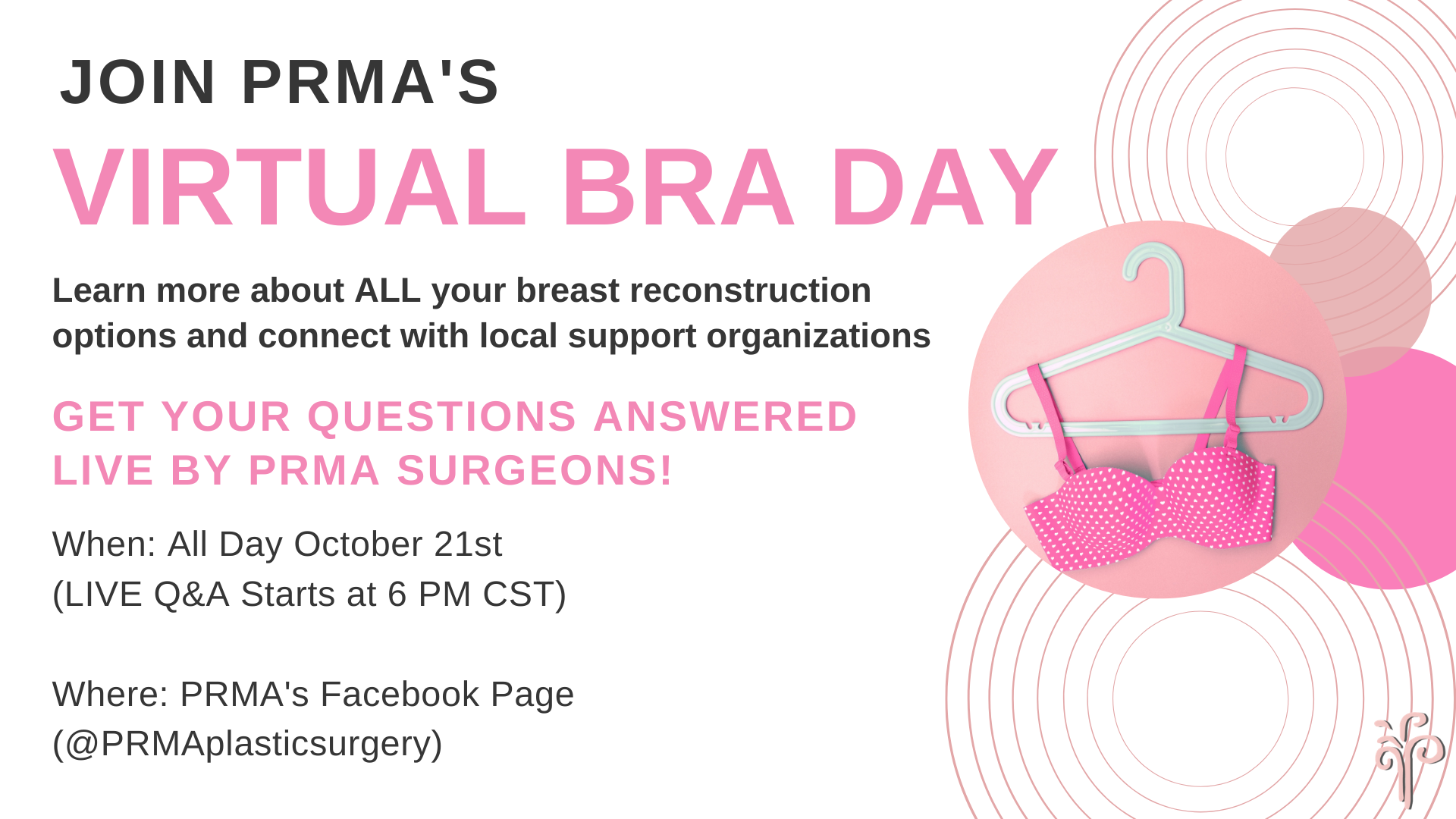
PRMA’s BRA Day Virtual Event Recap
PRMA’s BRA Day Virtual Event Recap September 08, 2020 Share on Facebook Twitter Linkedin Yesterday we celebrated Breast Reconstruction Awareness day! Although we missed seeing everyone in person this year, we were still able to spread education and awareness on ALL reconstructive options through our virtual efforts. We were also able to share information on […]
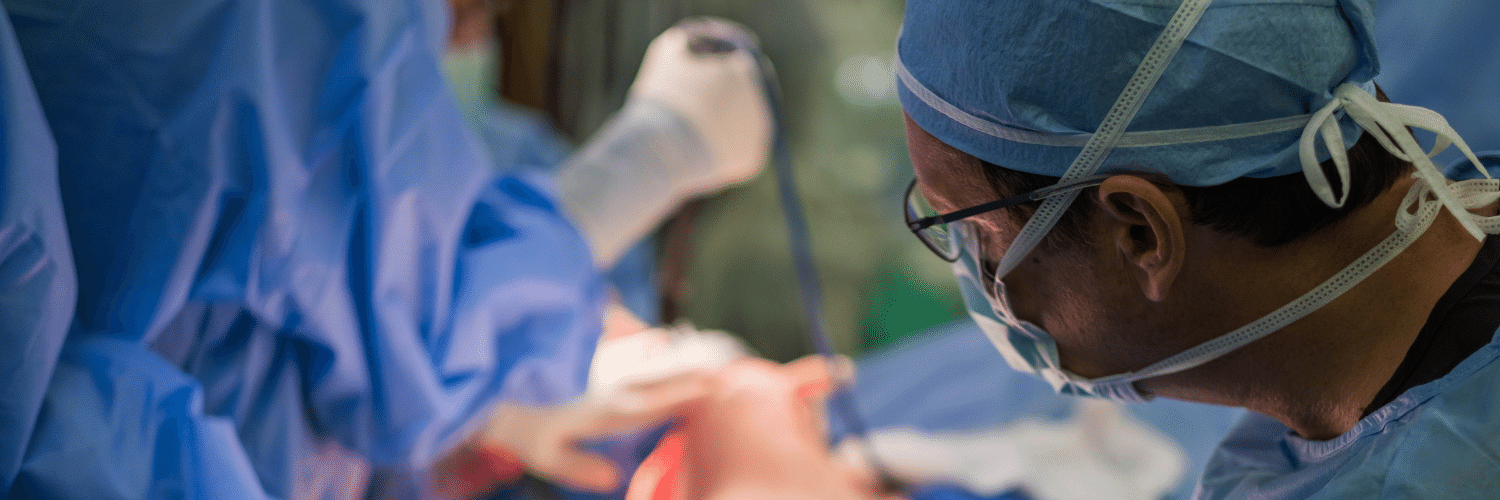
Second Stage DIEP Flap Surgery
Second Stage DIEP Flap Surgery September 08, 2020 Share on Facebook Twitter Linkedin DIEP flap breast reconstruction is typically comprised of at least two stages for the best outcomes. The second stage of surgery is commonly referred to as the “revision” stage and is usually performed about three months after the initial reconstruction. The purpose […]

If ‘Flaps’ Are Such A Great Breast Reconstruction Option, Why Doesn’t Everyone Get Them?
If ‘Flaps’ Are Such A Great Breast Reconstruction Option, Why Doesn’t Everyone Get Them? September 08, 2020 Share on Facebook Twitter Linkedin Flap-based breast reconstruction procedures, like the DIEP flap, offer patients a safe, natural implant-alternative option to reconstruction after a mastectomy. Flap surgeries are permanent and are associated with fewer complications after radiation when […]
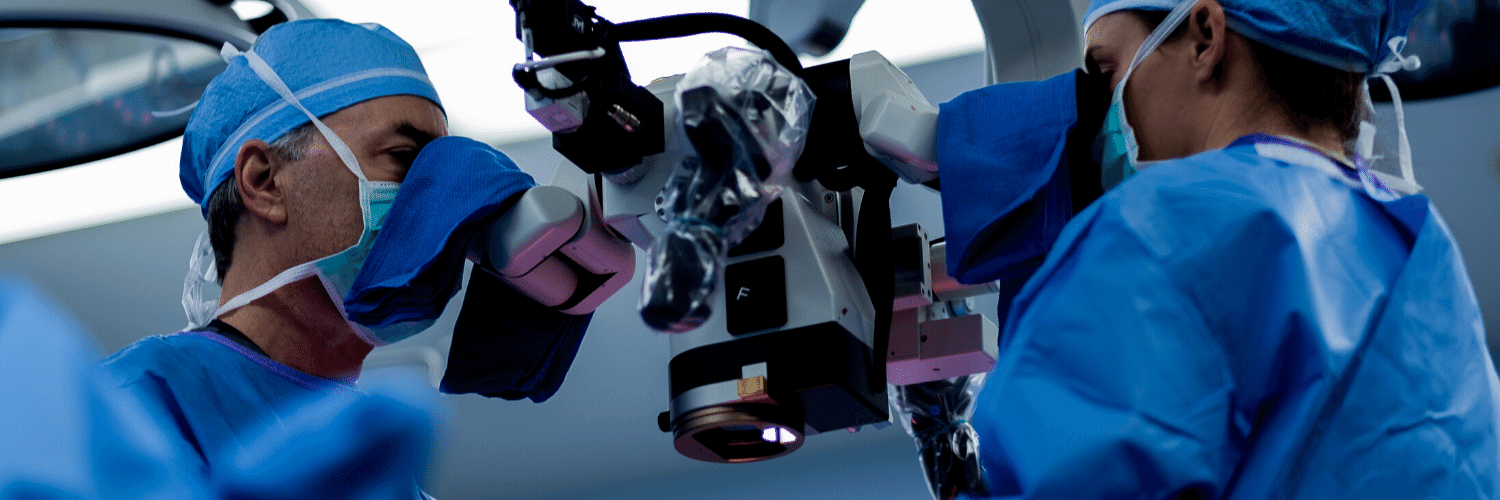
What is a Skin Island and How is it Used in Breast Reconstruction?
What is a Skin Island and How is it Used in Breast Reconstruction? September 08, 2020 Share on Facebook Twitter Linkedin What is a “skin island”? The term “skin island” is used to describe the remaining visible skin from a transplanted “flap” of tissue. In the setting of DIEP flap breast reconstruction, the skin island […]

Comparing APEX Flap and DIEP Flap Breast Reconstruction
Comparing APEX Flap and DIEP Flap Breast Reconstruction August 10, 2020 Share on Facebook Twitter Linkedin We have been receiving numerous inquiries about the “APEX flap” recently. Patients want to know what it is and how it differs from the DIEP flap. APEX is an acronym that stands for “Abdominal Perforator Exchange”. Many patients believe […]
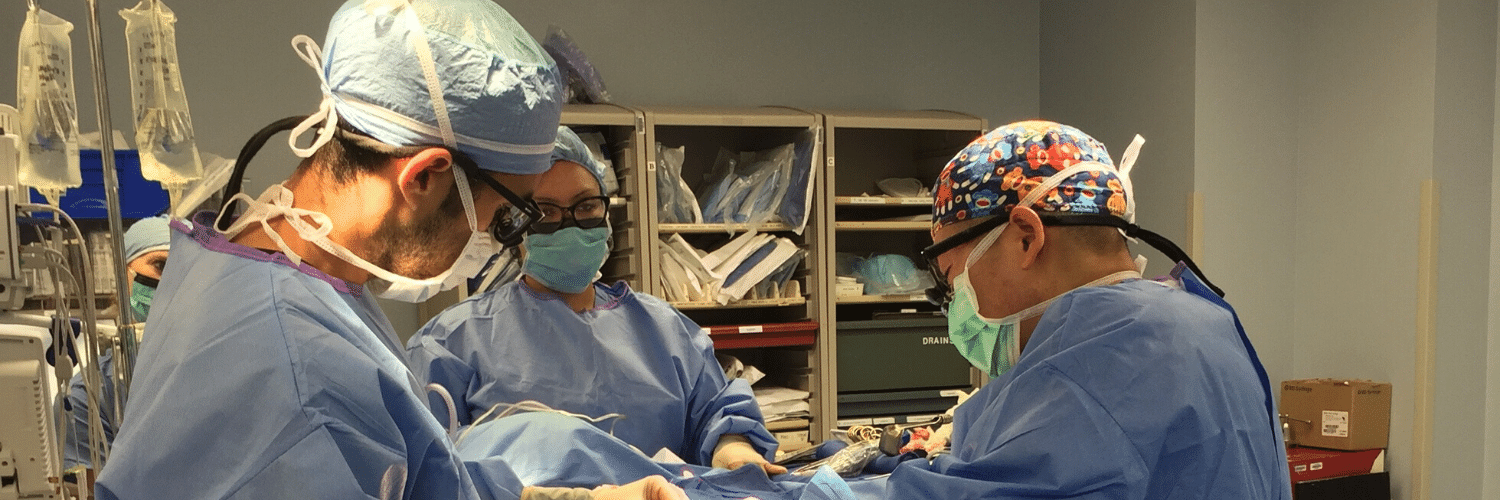
Monitoring the Health of Your Flap During & After Surgery
Monitoring the Health of Your Flap During & After Surgery July 21, 2020 Share on Facebook Twitter Linkedin Autologous flap (or tissue) breast reconstruction procedures represent today’s most advanced options for rebuilding a breast(s) following mastectomy. The most commonly performed method of flap-based reconstruction at PRMA is the DIEP flap. During this procedure, surgeons transplant skin […]
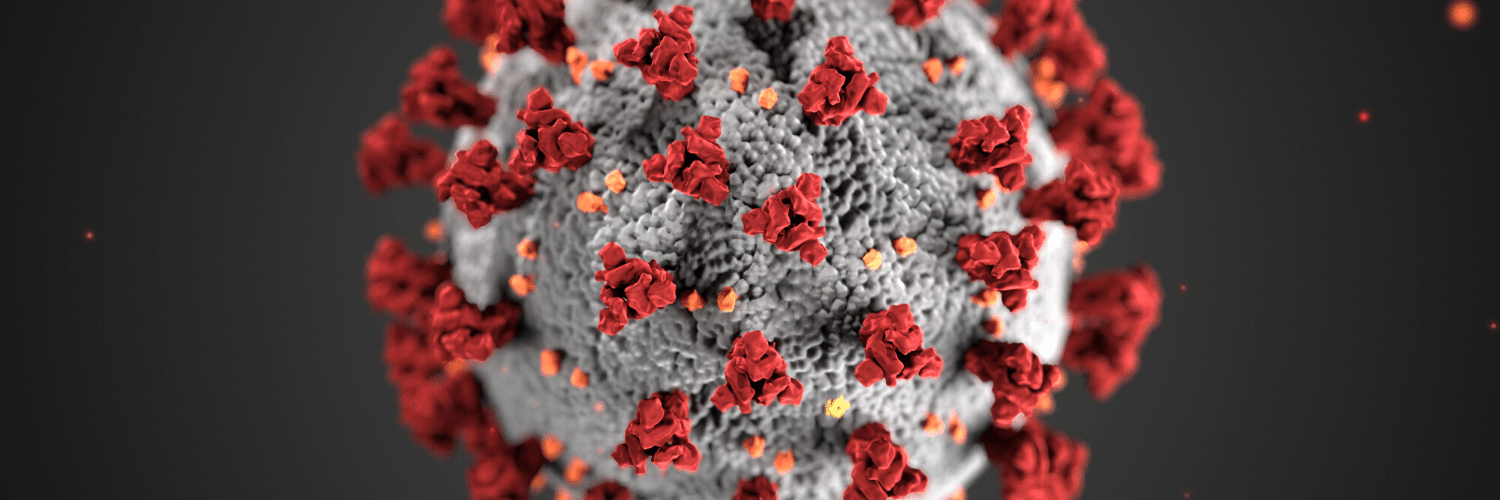
COVID-19 and the Impact on Cancer Patient’s Mortality
COVID-19 and the Impact on Cancer Patient’s Mortality July 21, 2020 Share on Facebook Twitter Linkedin There is still so much we do not know about COVID-19. Likewise, there is little known about how this disease impacts mortality for cancer patients. A study published in The Lancet evaluated and characterized the outcomes of patients with cancer […]

Tissue transfer , a lot is discussed about the DIEP surgery, Is there anything wrong with the latissimus dorsi flap? Some patients do not have enough tissue to use the stomache area. They are recommended to have the LAT surgery. Does the body compensate for the loss of both Latissimus muscles. I am not a pro at swimming, tennis or skiing, but do play softball, exercise , push a vacuum and also carry laundry baskets , how much mobility will my body loose? Will I have trouble with shoulders and strength in arms . Will physical therapy help to increase mobility after surgery and put me back to normal or close.
Thank you,
Lisa Minnoe
Lisa Minnoe
July 20,2020